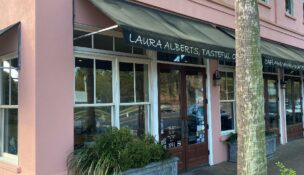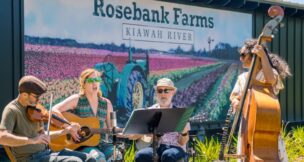Charleston appeals tour guide licensing decision
Staff //January 15, 2019//
 The city of Charleston is appealing a U.S. district court judge’s August decision that the city’s mandatory tour guide licensing program is unconstitutional.
The city of Charleston is appealing a U.S. district court judge’s August decision that the city’s mandatory tour guide licensing program is unconstitutional.
The appeal comes a month after Judge David Norton refused to reconsider his ruling that the city’s ordinance violated the First Amendment, on the grounds that Charleston had not presented any new evidence that wasn’t available at trial.
Institute for Justice, a Virginia-based advocacy group, filed a lawsuit in 2016 on behalf of three Charleston residents, Kimberly Billups, Michael Warfield and Michael Nolan, who either failed to become tour guides or whose tour guide business failed because of the city’s requirements.
Charleston had operated a mandatory tour guide licensing program for almost 30 years until the August ruling. The city still has a voluntary certification program.
City attorney Carol Ervin said in a statement that Charleston continues to believe a mandatory licensing program is the most effective way to protect tourists, residents and the tourism industry from “unqualified or unscrupulous guides.”
“Despite the court’s ruling in this case, the city is confident that the mandatory licensing process for tour guides previously in place did not violate the First Amendment, as other courts, including the Fifth Circuit Court of Appeals, have held,” Ervin said.
The Fifth Circuit ruled in 2014 that a mandatory tour guide licensing ordinance in New Orleans did not violate the First Amendment. Charleston’s appeal will be decided by the Fourth Circuit Court of Appeals in Richmond, Va.
Arif Panju, Institute for Justice managing attorney, said in a news release that the group is “delighted to have the chance” to make its arguments on appeal.
“The First Amendment protects your right to speak for a living, whether you are a journalist, a comedian, or a tour guide,” Panju said. “The judge in this case correctly found that Charleston was infringing on that right despite having no real evidence in support of its decision to do so.”
t















